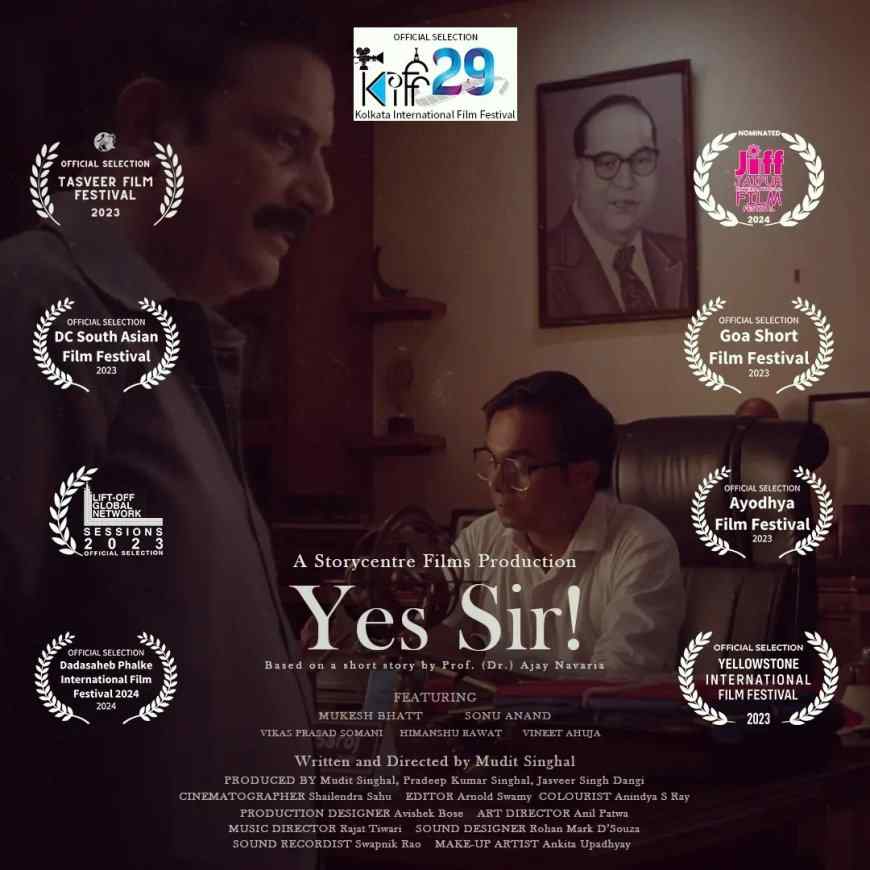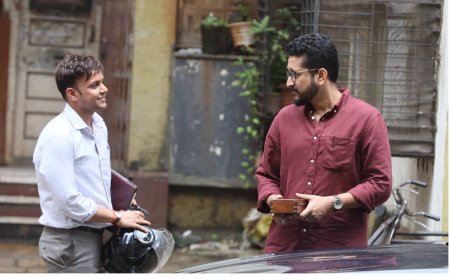Film Review: Yes Sir (2023): A humorous exploration of shifting mindsets in Indian society
Dipankar Sarkar provides a comprehensive analysis of Mudit Singhal's short film "Yes Sir."

Mudit Singhal’s short film, Yes Sir unfurls as a comedic exploration of persistent caste issues that stain our societal fabric. Adapted from a short story by Prof. (Dr) Ajay Navaria, the narrative revolves around Tiwari (Mukesh Bhat), a Brahmin peon in a government organization where Narrotam Saroj (Sonu Anand), a Dalit, holds a prominent position. The film delves into a humorous tale as Tiwari grapples with his hierarchical status and biases towards the officer, resulting in an unexpected yet effective collaboration to address the issue of a clogged bathroom drain.
The film opens with a dreamy scene in which Tiwari envisions that society categorizes him based on his upper-class status. In his imaginative world, he sees his boss as a social outcast, abandoned by the masses. However, in reality, he is fully aware of his position in the office. He harbours such strong disdain for his lower-caste boss that, given the opportunity, he would not hesitate to seize the chance to spit in his boss's black coffee. At the same time, Tiwari disapproves of the pig-rearing business and borrows cigarettes from Durgadas. All this illustrates how societal norms and personal biases can influence one's actions, even if they appear contradictory or hypocritical.
By employing striking detailing precision in the way characters address each other, the film reveals subtle nuances in their dynamics. Individuals from lower castes, such as Laikram and Durgadas, are referred to by their initials; even the DGM is without a surname on the nameplate of his office door. In contrast, Dwivedi, Mishra, and Tiwari are exclusively addressed by their surnames, emphasizing the significant caste identity associated with their status. Similarly, Durgadas, working in the same office, also runs a pig farming business alongside his government job. Durgadas points out that individuals like Mr. Chopra, a wealthy business partner, are involved in similar ventures, emphasizing a collaborative economic effort between upper castes and non-upper castes, with the main distinction being the scale of operations.
Navigating the shifting mindset within Indian society, the short film weaves social anomalies. Its unique strength lies in presenting a profound issue with humour. Aligned with Babasaheb Ambedkar's belief that eradicating the deep-rooted caste system necessitates education, the film illustrates the waning impact of this narrow mindset. This transformation becomes apparent when Narrotam is introduced, with the framed photograph of Babasaheb in the background symbolizing a shift towards a more inclusive society. Here, education emerges as a potent tool for social transformation.
Overall, the twenty-minute short film advocates the perspective that individuals whether in government positions or in general should be revered based on their roles and actions rather than their caste affiliations. It aspires to cultivate a society where merit and talent triumph, transcending the shackles of caste-based discrimination, which also becomes evident in the final shot with the expansion of the camera frame. The film had its world premiere at the Tasveer South Asian Film Festival and was recently screened at the 29th Kolkata International Film Festival.
What's Your Reaction?


































































